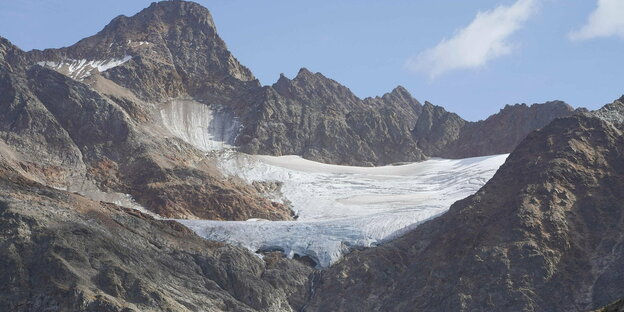The “climate elders” have fought for the human right to climate protection. A historic victory, even if two other lawsuits were dismissed.

Visible consequence of climate change: glacial retreat in the Bernese Oberland Haslital Photo: Manuel Geisser/imago
Switzerland does not sufficiently protect the climate and therefore violates human rights. This was decided on Tuesday by the European Court of Human Rights.
At first glance it seems like something everyone already knows: after all, many thousands of people die every year from the heat. Droughts and floods destroy some crops and make adequate, healthy nutrition more difficult and expensive. The climate crisis is causing significant restrictions on people's most basic needs. And industrialized countries like Switzerland do nothing about it, but of course they do too little. This is more or less common sense.
But common sense is not everything, if not almost nothing, in court. The Convention on Human Rights, whose compliance is monitored by the Court of Human Rights, dates back to 1950. Therefore, it does not even mention the climate crisis. Would the judges even feel responsible? That was a legitimate concern before the verdict.
The Climate Seniors, a group of about 2,000 Swiss women, had filed a lawsuit. In the Swiss Confederation they have already sued the courts without success. The fact that the Strasbourg judges have largely agreed with them is a great success.
Because it is the first climate lawsuit that succeeds before the Strasbourg judges. On Tuesday they rejected two more, but mainly for formal reasons.
The young Portuguese had sued more than 30 European countries for greater climate protection, but in the court's opinion they should have gone to the authorities of their country of origin first.
And Frenchman Damien Carême, former mayor of the coastal town of Grande-Synthe, had accused his government. But he is now a member of the EU Parliament and lives in Brussels, so, according to the court, he can no longer be considered a victim within the meaning of his claim.
Despite these judgments, the conclusion remains indisputable: climate protection is a human right.